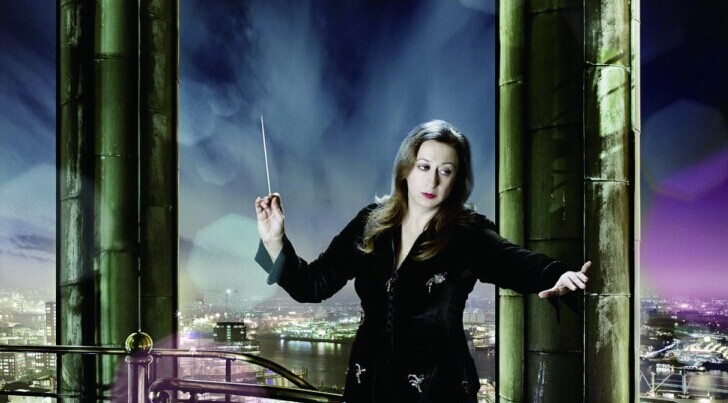A person of powerful vision and fearsome ability, Simone Young has boldly gone where no woman has gone before. Known for her work with the German classical tradition, she was the first female to conduct the Vienna Philharmonic, shattering the orchestra’s controversial glass ceiling in 2005. Currently music director of the Hamburg State Opera, she talks to us about reinventing Wagner’s epic Ring cycle and the best of Beethoven.
When did you decide to become a conductor?
I started conducting while still a student, with community opera and musical groups. After joining Opera Australia as a pianist, I very quickly started conducting rehearsals, backstage and so on. From there it was a small step to conducting performances. I never actually decided to become a conductor – I was one.
Which maestro has influenced you the most?
Daniel Barenboim – I was his assistant in Bayreuth and then joined him in Berlin as one of the resident conductors at the Staatsoper Unter den Linden. His approach to conducting through phrasing and sound color was a great influence on many of my own ideas about music.
You have recorded the complete symphonies of Brahms. Do you intend to record the complete symphonies of Beethoven?
One day, certainly. But I have no such plans at the moment.
You are also well known for your Wagnerian work. Last year, you performed all Wagner’s operas within one month. What kind of preparation went into this feat?
This was a project that was many seasons in preparation. We revised most of the great Wagner repertoire over the preceding years, and completed our Ring cycle in 2010. The Philharmonic Hamburg has a great tradition of performing Wagner, and this extraordinary challenge was one we met with concentrated engagement from all involved. Our festival of Wagner-madness generated much excitement both within Hamburg audiences and throughout the world. Visitors came to us from the States, China, Australia and many European countries.
Do you listen to music to relax? Can you ever listen to music and not think about the mechanics of it?
I don't listen to music that I conduct or would consider conducting or that I play as a pianist. I don't listen to any of that kind of music to relax because it will engage my conscious mind. I listen to chamber music quite a lot, I listen to baroque music which I know very little about and intend to keep it that way so at least there's one area of music I can listen to just to relax. But see, I can't listen to music passively. I lost that facility probably about 25 years ago. It's impossible for me to have background music. Music is never in the background for me; if there's music playing then I am drawn into it.
What is the most frequently played piece of music on your MP3 player or in your CD collection?
Die Winterreise by Schubert.
As a female conductor, what is the greatest difficulty and obstacle you’ve had to overcome?
Not an obstacle – not an issue. Completely irrelevant.
Have you ever been to China before? What are you planning to do while here?
No, in fact, this will be my first visit to China. I am very much looking forward to meeting Chinese audiences – and of course to visiting many museums and historic buildings. I would also like to sample the regional cuisines of the cities that we are visiting.
You will be conducting the Vienna Symphony on your trip this month. What about this orchestra impresses you the most?
The Wiener Symphoniker have a long tradition of playing the great classical repertoire. Their sound and style is especially powerful in the German romantic repertoire, so our programs for this tour should showcase the orchestra’s strengths.
Beethoven’s ‘Symphony No. 7’ is one of two pieces you are scheduled to conduct in Guangzhou. Can you remember how you were introduced to this piece?
I first heard a piano arrangement of the second movement when I was a child, beginning to learn the piano. I found the music very disturbing – emotional and dark. As I have now conducted it many times, this early impression of darkness and sadness has remained. It is a very deeply moving work.
The other piece you are conducting is Beethoven’s ‘Symphony No. 3,’ a dramatic, operatic symphony. It's been said this symphony had a great impact on Wagner's Tristan and Isolde. What do you think of this opinion?
I think much of Wagner is inspired by Beethoven, as are the symphonies of Brahms and Bruckner. Beethoven’s grand structures, dramatic and darkly emotional melodies were surely the ancestors of Wagner’s deeply romantic work.
// June 2, 8pm, RMB180-2,080. Xinghai Concert Hall, 33 Qingbo Lu, Ersha Island, Yuexiu District, Guangzhou 广州市二沙岛晴波路33号 (8735 2222 ext. 886, www.concerthall.com.cn)


















